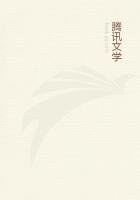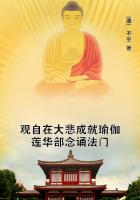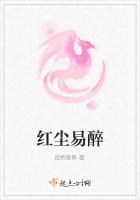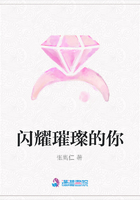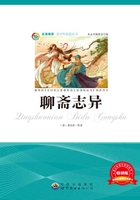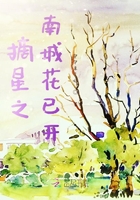This pure love has, however, been much aided by the ambition to be esteemed by my fellow naturalists. From my early youth I have had the strongest desire to understand or explain whatever Iobserved,--that is, to group all facts under some general laws.
These causes combined have given me the patience to reflect or ponder for any number of years over any unexplained problem. As far as I can judge, I am not apt to follow blindly the lead of other men. I have steadily endeavoured to keep my mind free so as to give up any hypothesis, however much beloved (and I cannot resist forming one on every subject), as soon as facts are shown to be opposed to it. Indeed, I have had no choice but to act in this manner, for with the exception of the Coral Reefs, I cannot remember a single first-formed hypothesis which had not after a time to be given up or greatly modified. This has naturally led me to distrust greatly deductive reasoning in the mixed sciences.
On the other hand, I am not very sceptical,--a frame of mind which I believe to be injurious to the progress of science. Agood deal of scepticism in a scientific man is advisable to avoid much loss of time, but I have met with not a few men, who, I feel sure, have often thus been deterred from experiment or observations, which would have proved directly or indirectly serviceable.
In illustration, I will give the oddest case which I have known.
A gentleman (who, as I afterwards heard, is a good local botanist) wrote to me from the Eastern counties that the seed or beans of the common field-bean had this year everywhere grown on the wrong side of the pod. I wrote back, asking for further information, as I did not understand what was meant; but I did not receive any answer for a very long time. I then saw in two newspapers, one published in Kent and the other in Yorkshire, paragraphs stating that it was a most remarkable fact that "the beans this year had all grown on the wrong side." So I thought there must be some foundation for so general a statement.
Accordingly, I went to my gardener, an old Kentish man, and asked him whether he had heard anything about it, and he answered, "Oh, no, sir, it must be a mistake, for the beans grow on the wrong side only on leap-year, and this is not leap-year." I then asked him how they grew in common years and how on leap-years, but soon found that he knew absolutely nothing of how they grew at any time, but he stuck to his belief.
After a time I heard from my first informant, who, with many apologies, said that he should not have written to me had he not heard the statement from several intelligent farmers; but that he had since spoken again to every one of them, and not one knew in the least what he had himself meant. So that here a belief--if indeed a statement with no definite idea attached to it can be called a belief--had spread over almost the whole of England without any vestige of evidence.
I have known in the course of my life only three intentionally falsified statements, and one of these may have been a hoax (and there have been several scientific hoaxes) which, however, took in an American Agricultural Journal. It related to the formation in Holland of a new breed of oxen by the crossing of distinct species of Bos (some of which I happen to know are sterile together), and the author had the impudence to state that he had corresponded with me, and that I had been deeply impressed with the importance of his result. The article was sent to me by the editor of an English Agricultural Journal, asking for my opinion before republishing it.
A second case was an account of several varieties, raised by the author from several species of Primula, which had spontaneously yielded a full complement of seed, although the parent plants had been carefully protected from the access of insects. This account was published before I had discovered the meaning of heterostylism, and the whole statement must have been fraudulent, or there was neglect in excluding insects so gross as to be scarcely credible.
The third case was more curious: Mr. Huth published in his book on 'Consanguineous Marriage' some long extracts from a Belgian author, who stated that he had interbred rabbits in the closest manner for very many generations, without the least injurious effects. The account was published in a most respectable Journal, that of the Royal Society of Belgium; but I could not avoid feeling doubts--I hardly know why, except that there were no accidents of any kind, and my experience in breeding animals made me think this very improbable.
So with much hesitation I wrote to Professor Van Beneden, asking him whether the author was a trustworthy man. I soon heard in answer that the Society had been greatly shocked by discovering that the whole account was a fraud. (The falseness of the published statements on which Mr. Huth relied has been pointed out by himself in a slip inserted in all the copies of his book which then remained unsold.) The writer had been publicly challenged in the Journal to say where he had resided and kept his large stock of rabbits while carrying on his experiments, which must have consumed several years, and no answer could be extracted from him.
My habits are methodical, and this has been of not a little use for my particular line of work. Lastly, I have had ample leisure from not having to earn my own bread. Even ill-health, though it has annihilated several years of my life, has saved me from the distractions of society and amusement.
Therefore my success as a man of science, whatever this may have amounted to, has been determined, as far as I can judge, by complex and diversified mental qualities and conditions. Of these, the most important have been--the love of science--unbounded patience in long reflecting over any subject--industry in observing and collecting facts--and a fair share of invention as well as of common sense. With such moderate abilities as Ipossess, it is truly surprising that I should have influenced to a considerable extent the belief of scientific men on some important points.
End

